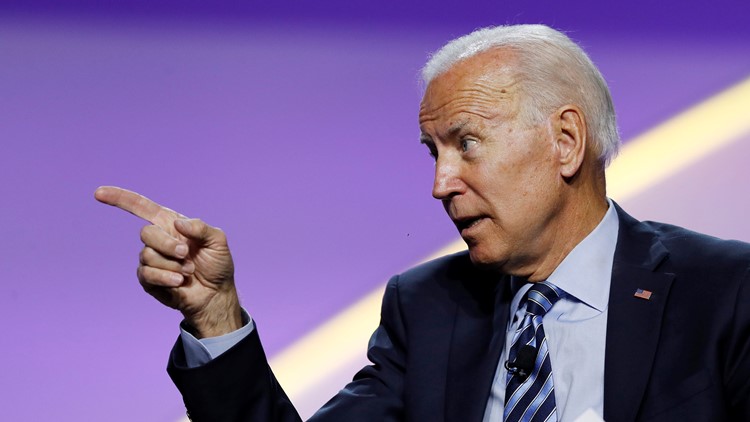President Donald Trump triggered outrage Tuesday by comparing the Democrat-led impeachment inquiry to a lynching, assigning the horrors of a deadly and racist chapter in U.S. history to a process laid out in the Constitution.
Democrats and Republicans alike criticized his comments. Senate Majority Leader Mitch McConnell called Trump's words "unfortunate."
"Given the history in our country, I would not compare this to a lynching," the Senate's top Republican told reporters. "That was an unfortunate choice of words."
Democratic Rep. Bobby Rush said the president should delete his tweet.
"Do you know how many people who look like me have been lynched, since the inception of this country, by people who look like you. Delete this tweet," Rush wrote.
However, Trump allies were quick to point out that several Democrats have also used similar vocabulary in the past, to describe impeachment proceedings against President Bill Clinton in 1998.
Democratic Rep. Gregory W. Meeks tweeted that he didn't expect Trump to be "sensitive to the weight of that word, or see how insulting and hurtful it is to invoke here,"
However, some pointed out that Meeks, along with Democratic Rep. Danny K. Davis described the Clinton impeachment proceedings as a "lynching" on the House floor in 1998.
Meeks responded to his 1998 remarks in a statement to The Fix, according to the Washington Post, saying that "context matters," and there were certain words he was "more at liberty to invoke" than Trump.
“Yes, I said those words, but context matters," he said. There is a difference when that word is used by someone of my experience and perspective, whose relatives were the targets of lynch mobs, compared to a president who has dog-whistled to white nationalists and peddled racism. “This is the birther president, who called African nations s---holes and urban cities infested. Those he called ‘very fine people’ in Charlottesville were the kind of people who lynched those who looked like me. So, yes — there are certain words I am more at liberty to invoke than Donald J. Trump.”
Democratic Presidential candidate Joe Biden was also vocal about his criticism of Trump's comments. On twitter, he wrote "Impeachment is not "lynching," it is part of our Constitution. Our country has a dark, shameful history with lynching, and to even think about making this comparison is abhorrent. It's despicable."
However, in 1998, then-Senator Biden called Clinton's impeachment proceedings a "partisan lynching" during a CNN interview. Biden apologized for his comments later on Twitter.
"This wasn't the right word to use and I'm sorry about that," he wrote. "Trump on the other hand chose his words deliberately today in his use of the word lynching and continues to stoke racial divides in this country daily."
Several other Democrats have also used similar wording when referring to the Clinton impeachment, according to the Washington Post.
Then Rep. Charles B. Rangel described what he called a "lynch mob mentality, that says this man has to go" during a speech on the same day Meeks used the term.
Rep. Jerrold Nadler has also called the impeachment process against Clinton a "lynch mob" on at least three separate occasions.
He told Newsday "We shouldn't participate in a lynch mob against the president" on Sept. 13, 1998. Shortly after, he told the South China Morning Post he saw “no evidence that the Republicans want to do anything other than organize a lynch mob."
A month later he again said Republicans were "running a lynch mob" against Clinton, this time to the Associated Press, according to the Washington Post.
Then Rep. Jim McDermott also had similar comments in 1998.
“This feels today like we’re taking a step down the road to becoming a political lynch mob,” McDermott said at the time, according to the Washington Post. “Find the rope, find the tree and ask a bunch of questions later.”



